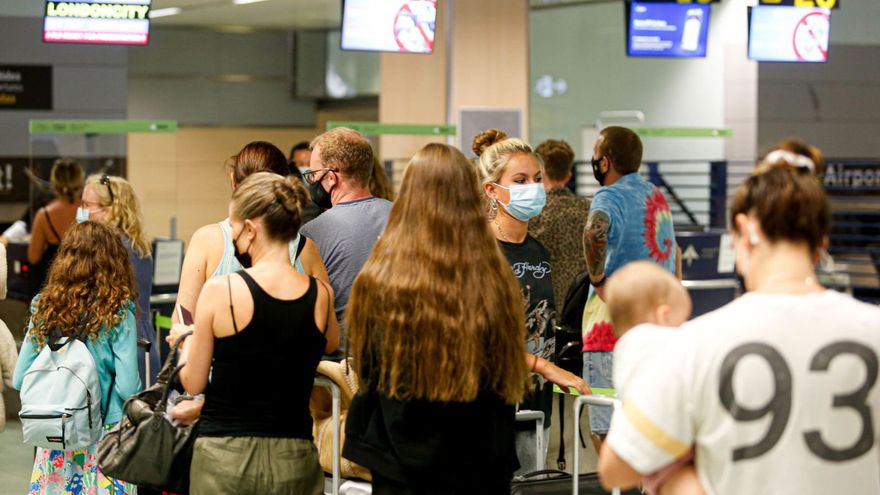European Union legislators agreed last week to give the green light to the new Digital Markets Act, which affects platforms such as Google, Amazon, Meta and the so-called OTAs (online travel agencies), which play a very important role in the tourism sector on Ibiza. OTAs are companies like Expedia or Booking.com. The latter controls up to 70% of digital travel sales.
The new legislation (which still must be endorsed by the Council and the European Parliament and become a regulation to be applied in six months) puts a stop to the so-called parity clauses, which are compulsory for OTAs in their contracts with hoteliers and which prevent the latter from offering customers more advantageous prices in their own direct channels. In other words, hoteliers cannot sell accommodation at prices lower than those offered by Booking.com. In principle, the law will also force OTAs to provide hotel companies with access to the data generated by clients, which until now has been forbidden.
Alicia Reina, president in the Balearic Islands of the Spanish Association of Hotel Managers (AEDH), applauds the decision (“it is good news for the sector”) and recalls that her organization had already reported the Booking.com platform to the National Markets and Competition Commission (CNMC) a year ago for imposing parity clauses in their contracts: “With this European decision, all clauses that go against the possibility of having better prices than those of Booking.com or other platforms will be annulled”.
“With this European decision, all clauses that go against the possibility of having better prices than Booking.com or other platforms will be annulled”
While waiting for the regulation to be created, Booking.com “continues to include this price parity clause in the framework contract that it presents to all those on its platform”, says Reina, who hopes that the European Digital Markets Act that stops this practice “will be implemented as soon as possible”. The Balearic president of AEDH considers that Booking.com “impedes freedom of competition”.
Although the regulation applies to the whole of Europe, there are already several countries that have declared this price parity illegal, such as France, Germany, Austria, Belgium, Sweden, Italy and the United Kingdom. Spain does not appear on the list.
Hotels left without the customer’s email
Regarding the fact that OTAs should also be more transparent with the data generated by travelers, Reina explains how they currently operate: “The OTA does not give the customer’s data to the hotel. Every time a tourist makes a reservation, the hotel receives an email from the client with the ending @booking.com. Nothing else. Booking.com controls the communications you have with the traveler.” The reason: “They think that if they provide all the information to the hotel, they will lose that customer. They are even making very important loyalty programs so that they prefer to make reservations through Booking.com, instead of through the hotel’s direct channel. Controlling customer data is crucial for online travel agencies.”
“The OTA does not give the customer data to the hotel. Every time a tourist makes a reservation, the hotel receives an email from the customer with the ending @booking.com. Nothing else. Booking.com controls the communications you have with the traveler”
For Manuel Sendino, manager of the Federation of Hotels of Ibiza and Formentera, it is “good news that the actions of the OTAs will be transparent”. In his opinion, ending the parity clause imposed by these digital agencies “is pure common sense: there is no reason why you cannot sell in one place cheaper than another, if you have lower costs”. The new European legislation “will prevent certain practices in e-commerce in general that are considered abusive,” he says.
“Abuse of dominant position”
“It is a solution that, sooner or later, had to come because the European Union has among its main pillars to pursue anticompetitive practices,” says José Antonio Roselló, vice president of CAEB. “And more so in this case, which is not so much a monopoly as what is considered an abuse of the dominant position” of the OTAs. These online platforms “are very important for tourism and, therefore, “we must collaborate with these types of companies, but we must do so within a framework of parity and economic equality”. The decision to put a stop to certain practices, such as the parity clause, “is fair and does not harm the OTAs. And, above all, it benefits the hotel sector, as it will allow, the market to function in a more efficient manner,” says Roselló.
Up to 40% commission on the booking price
“If a hotel is not on Booking.com it doesn’t exist,” says Alicia Reina, president of AEDH Balearic Islands: “Right now there is an oligopoly, almost a monopoly, between this OTA and Expedia. It is an abuse of power. In hotels that have stopped operating mostly with the traditional tour operator (which now accounts for about 10%) and market more directly, Booking.com can represent 70% of direct sales”.
For hotels it is vital where they appear on OTA websites. The higher up, the better. But that comes at a price. AEDH also denounced before the CNMC that this practice was abusive: “They deceive the consumer with this ranking. It is as if they say that the first hotel that appears on the list is the best, when in reality it appears there because it pays a higher commission. This is fraud to the user. Transparency for the customer should be a priority. Commissions are another battleground: the initial commissions “are 17%”, but end up being “up to 40%”. Reina gives the example of a 100-euro reservation. Of that amount, the hotel will ultimately receive almost 54 euros, after deducting commissions of 10% for the Genius program application; 15.3% for general commission; 2% for the Preferred program; 10% for a mobile device; and 3% for delegated payment.
For the full article, please visit Diario de Ibiza website here.


